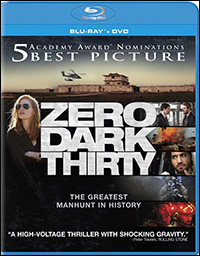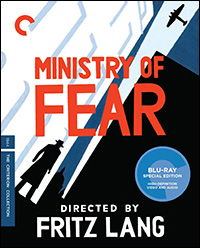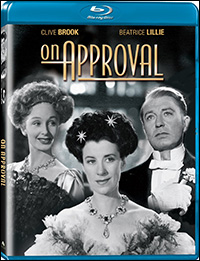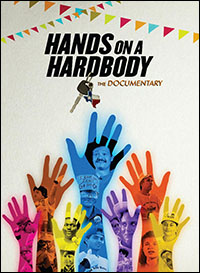
*
One of the biggest films of the past months, with an emphasis on the word big, is Tom Hooper's production of Cameron Mackintosh's Les Misérables. Big as in enormous — here is a panoply of Paris, circa 1830; here is an all-star cast, headed by Hugh Jackman, Russell Crowe and Anne Hathaway, with Eddie Redmayne, Helena Bonham Carter and even Sacha Baron Cohen; here is a budget said to be in the $60 million neighborhood, a lovely neighborhood in which to be; here is a film that has taken in more than $430 million, thus far, since opening on Christmas day.
It is also big in terms of what it represents. This is a film version of the legendary international classic superspectacular stage musical by Alain Boublil and Claude-Michel Schönberg that conquered the hearts of theatregoers everywhere since initially opening on the West End in 1985. Where it received lousy reviews. And where it is still playing. The show went on to conquer the world, with monumentally successful productions in New York and elsewhere, although some viewers — myself included — have always found the thing to be somewhat lacking. But then, I self-sabotaged my first visit early in the London run by having innocently read, shortly before, a book — also called "Les Misérables" — by a long-ago Frenchman named Victor Hugo. The novel kept me fully engrossed for the month it took me to read it; the musical only seemed to slowly grind on for a month, without the high points.
Someday I suppose I'll sit down to a new Les Mis — there's another Broadway revival on the way, we are told — and find the thing as magical as most everybody else in the universe does. That day hasn't yet arrived, though. The filmed Les Miz — and no, I'm not referring to the memorable 1935 version starring Frederic March and Charles Laughton — did not work its magic on me, but I suppose you could say that I was predisposed. Fifty million Frenchmen, and $430 million worth of ticketbuyers, can't be wrong. I will say, though, that while I don't appreciate the musical, this cinematic triumph is an impressive piece of filmmaking.
Bonus features on the Blu-ray include "'Les Misérables' Singing Live," a discussion of what it's like to sing live into the camera rather than using lip-synching; "Battle at the Barricade," presenting an in-depth look at the creation and filming of the battle; "The West End Connection," featuring Cameron Mackintosh; and "'Les Misérables' on Location," which shows us — well, "Les Misérables" on location. These are in addition to the DVD bonuses, on casting the film; on the production design; on the original novel; and feature commentary by director Hooper. Visit PlaybillStore.com to check out theatre-related DVDs for sale.
 |
||
| Cover art |
The film was torn from the headlines, and made headlines of its own. Was "Zero Dark Thirty," which was initially scheduled to open just before the last presidential election, too pro-Obama for fairness? Was the film's stance that brutal torture played a key part in the successful search an accurate representation of the facts? Did the filmmakers have improper access to classified material?
As a result, "Zero Dark Thirty" became something of a news story of its own. Did the backlash effect the Oscar race, in which the film, the star, and director Kathryn Bigelow — at one point seen by some as frontrunners — seemed to lose support? Perhaps. Even so, "Zero Dark Thirty" is a cracker-jack thriller which (unlike most of its ilk) actually gives a sense of the long, hard, weary and discouraging path that — in this case — led to success.
Special features include "No Small Feat — Making 'Zero Dark Thirty'"; "The Compound," offering a tour of the compound set; "Geared Up," showing the cast training for the storming of the compound; and "Targeting Jessica Chastain," which looks at the star and her role. And yes, Ms. Chastain — who was so good in the 2001 film "The Help" — thoroughly deserves the accolades for her hunt for Bin Laden.
Visit PlaybillStore.com to check out theatre-related DVDs for sale.
 |
||
| Cover art |
The other Criterion offering is set in wartime — not only WWs II and I but the Boer War as well. The Life and Death of Colonel Blimp is a chronicle of 40 years — 1902 through 1942 — seen through the life and career of British officer Clive Candy (Roger Livesey). Candy remains the same, as does his German cohort Theo Kretschmar-Schuldorff (Anton Walbrook), but the world changes around them until they are little more than out-of-place dinosaurs. (Co-star Deborah Kerr accompanies them, playing three different-but-identical women over the course of time.) Director/writer/producers Michael Powell and Emeric Pressburger's film is an acknowledged classic, although I must add that I appreciate it more than I like it. Perhaps it helps to be British as you watch the Empire fade away; or maybe you need to be of a certain age?
Along with the fine performances and sprightly score (by Allan Gray), the film is so color-filled that images positively leap off the screen. "Designed in Technicolor" reads Alfred Junge's credit, and we can understand how a film actually can be designed in Technicolor. This marks one of the many treats you can expect to find in "The Life and Death of Colonel Blimp." The restoration by the Film Foundation — which is absolutely luscious in the Criterion Blu-ray — was spurred along by Martin Scorsese, who has dedicated a great part of his energies to film preservation. The special features on the Blu-ray include audio commentary with director Powell and Scorsese; a new video introduction by Scorsese; and a restoration demonstration from Scorsese.
Visit PlaybillStore.com to check out theatre-related DVDs for sale.
 |
||
| Cover art |
Broadway saw 20 Lonsdale productions over the years, the last being a 1985 revival of his 1923 comedy Aren't We All? (The first starred a young Leslie Howard; this time the septuagenarian Rex Harrison played the role, accompanied by the octogenarian Claudette Colbert. We all called it "Aren't We Old?") Lonsdale's most successful play, The Last of Mrs. Cheney, came in 1925. His next, On Approval, actually premiered on Broadway in 1926 before opening on the West End. Lonsdale was also the grandfather or three little Foxes, actors James and Edward and producer Robert.
The play was soon filmed in 1930, and then faded away until stage and screen star Clive Brook wrote, directed, produced and starred in a second On Approval [B2MP] in 1944. (We are told in a bonus interview with costar Googie Withers that the film sat on the shelf for a while, at which point Brook bought it and — having fired the original director — reshot most of it.)
"On approval" refers to an arrangement worked out between a penniless gentleman (Roland Culver) who is in love with a rich widow (Beatrice Lillie). They agree to go off for a properly chaperoned month at Lillie's mansion on an island in Scotland to see whether they are compatible, accompanied by his friend (Brook, as a penniless Duke) and her friend (Withers, as an American heiress). Complications ensue, with not-unpredictable results.
Brook took the play — which was set in contemporary times — and moved it into the quainter Victorian era. (This heightened the humor and at the same time allowed Cecil Beaton to design a ravishing set of costumes.) What makes the whole thing so droll are the expert performances and the often-delicious dialogue. From a modern-day standpoint, the main attraction of this deft comedy of ill-manners comes from the presence of Lillie. One of the prime star comedians of the London/New York stage for more than 40 years (from 1924 on), the Canadian-born Lillie's talents did not seem to translate to the screen. At least, there was very little call for them; she only made a half dozen appearances, ending with her best known screen performance as Mts. Meers in the 1967 "Thoroughly Modern Millie." "On Approval" gives us Lillie in 1944, at the height of her stardom. This is also Lillie at the age of 50, which in that era was old. What leaps across from the screen is her rapier-sharp tongue enhanced by an ability to speak volumes with a raised eyebrow or a mere sideways glance. For those of us who have long heard about the great Lillie — and heard her on recordings — this is an enlightening opportunity to actually see her in action. She does not disappoint; she even tries to get some singing in, at the pianoforte.
*
 |
||
| Cover art |
Visit PlaybillStore.com to check out theatre-related DVDs for sale.
(Steven Suskin is author of "Show Tunes," "The Sound of Broadway Music: A Book of Orchestrators and Orchestrations," "Second Act Trouble," the "Broadway Yearbook" series and the "Opening Night on Broadway" books. He also pens Playbill.com's Book Shelf and On the Record columns. He can be reached at [email protected].)










